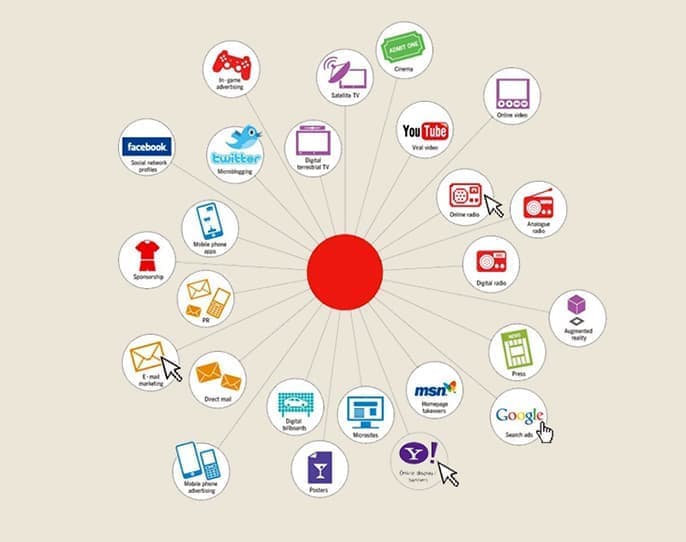New Media. Why are they popular?
Over the past decade, classic media formats such as newspapers, radio and television have been in decline due to the rapid development and consumption of the Internet. Many publications are closing down, others are changing the way they present their content, but still their position is not as stable as it once was. What is the cause of this crisis and what is new media?
I believe that the reason lies in the change and development of society. It has become more open, more free, more free-thinking. A big role in this evolution is played by the Internet, which allows a large number of people to quickly disseminate information. Yes, in Russia, the state has greatly increased its power and actively censors freedom of speech. But could you have imagined 10 years ago that 20+ million people would watch a movie by an opposition politician who didn't have access to television?
The Internet has made it possible for a person to get information from anywhere in the world at any time. One no longer needs to buy a morning/evening newspaper or wait for a news program on radio or television. All news is now at one's fingertips. This fact has changed the way people perceive news and changed the format in which news should be presented. And this is one of the reasons for the decline of traditional media: they tried to come to the new huge platform without changing their presentation of information, without adjusting to the conditions of this platform.
On the Internet, a person is faced with a relentless flow of information every second, so traditional formats don't grab their attention.
The second obvious problem of traditional media is that they are serious, closed and often officious. The reader has no direct contact with the editorial staff. These are two different worlds that rarely, if ever, intersect.
The new media that are now appearing in the media space are trying to solve these problems. New formats for presenting information (social networks, blogs, podcasts, Telegram channels, short viral videos, live broadcasts on social networks, vlogs, etc.) are much more open and allow the reader to get to know the journalist and the editorial staff better. These formats have no limitations developed over the years. They do not have to be serious and official.
And most importantly, the reader/listener/viewer can choose when to receive news. No more waiting for the morning/evening newspaper, radio program or TV show - information is available at any second.
People have long trusted not the brand of a publication, but the brand of an individual journalist. Oleg Kashin, explaining Ilya Varlamov's victory in the voting for the title “Journalist of the Year”, wrote:
I believe that the reason lies in the change and development of society. It has become more open, more free, more free-thinking. A big role in this evolution is played by the Internet, which allows a large number of people to quickly disseminate information. Yes, in Russia, the state has greatly increased its power and actively censors freedom of speech. But could you have imagined 10 years ago that 20+ million people would watch a movie by an opposition politician who didn't have access to television?
The Internet has made it possible for a person to get information from anywhere in the world at any time. One no longer needs to buy a morning/evening newspaper or wait for a news program on radio or television. All news is now at one's fingertips. This fact has changed the way people perceive news and changed the format in which news should be presented. And this is one of the reasons for the decline of traditional media: they tried to come to the new huge platform without changing their presentation of information, without adjusting to the conditions of this platform.
On the Internet, a person is faced with a relentless flow of information every second, so traditional formats don't grab their attention.
The second obvious problem of traditional media is that they are serious, closed and often officious. The reader has no direct contact with the editorial staff. These are two different worlds that rarely, if ever, intersect.
The new media that are now appearing in the media space are trying to solve these problems. New formats for presenting information (social networks, blogs, podcasts, Telegram channels, short viral videos, live broadcasts on social networks, vlogs, etc.) are much more open and allow the reader to get to know the journalist and the editorial staff better. These formats have no limitations developed over the years. They do not have to be serious and official.
And most importantly, the reader/listener/viewer can choose when to receive news. No more waiting for the morning/evening newspaper, radio program or TV show - information is available at any second.
People have long trusted not the brand of a publication, but the brand of an individual journalist. Oleg Kashin, explaining Ilya Varlamov's victory in the voting for the title “Journalist of the Year”, wrote:

In the unstable Russian reality, people can only rely on the author's reputation. As Kashin correctly notes in the same article, in Russia (and in the USSR) the genre of publicism was beloved and popular.
New Media is Publicity 2.0.
This change is not only happening in Russia, it is a global process. Media that talk about serious topics (The Verge, The Atlantic, Vox, Slate, etc.) are trying to put more emphasis on their authors, in fact, transferring almost all their content into the genre of columns, both text, audio (podcasts) or video (e.g. on YouTube), humor sites such as Buzzfeed are becoming popular, media are actively using social networks, even such as Snapchat and Instagram.
The development of such independent and open media leads to an even greater development of people living in society and an increase in their freedom of thought. In these new times, it has become much more difficult for the authorities to control people's thoughts and influence their ideology. People have become more independent and responsible, and that is a great thing.
New Media is Publicity 2.0.
This change is not only happening in Russia, it is a global process. Media that talk about serious topics (The Verge, The Atlantic, Vox, Slate, etc.) are trying to put more emphasis on their authors, in fact, transferring almost all their content into the genre of columns, both text, audio (podcasts) or video (e.g. on YouTube), humor sites such as Buzzfeed are becoming popular, media are actively using social networks, even such as Snapchat and Instagram.
The development of such independent and open media leads to an even greater development of people living in society and an increase in their freedom of thought. In these new times, it has become much more difficult for the authorities to control people's thoughts and influence their ideology. People have become more independent and responsible, and that is a great thing.



